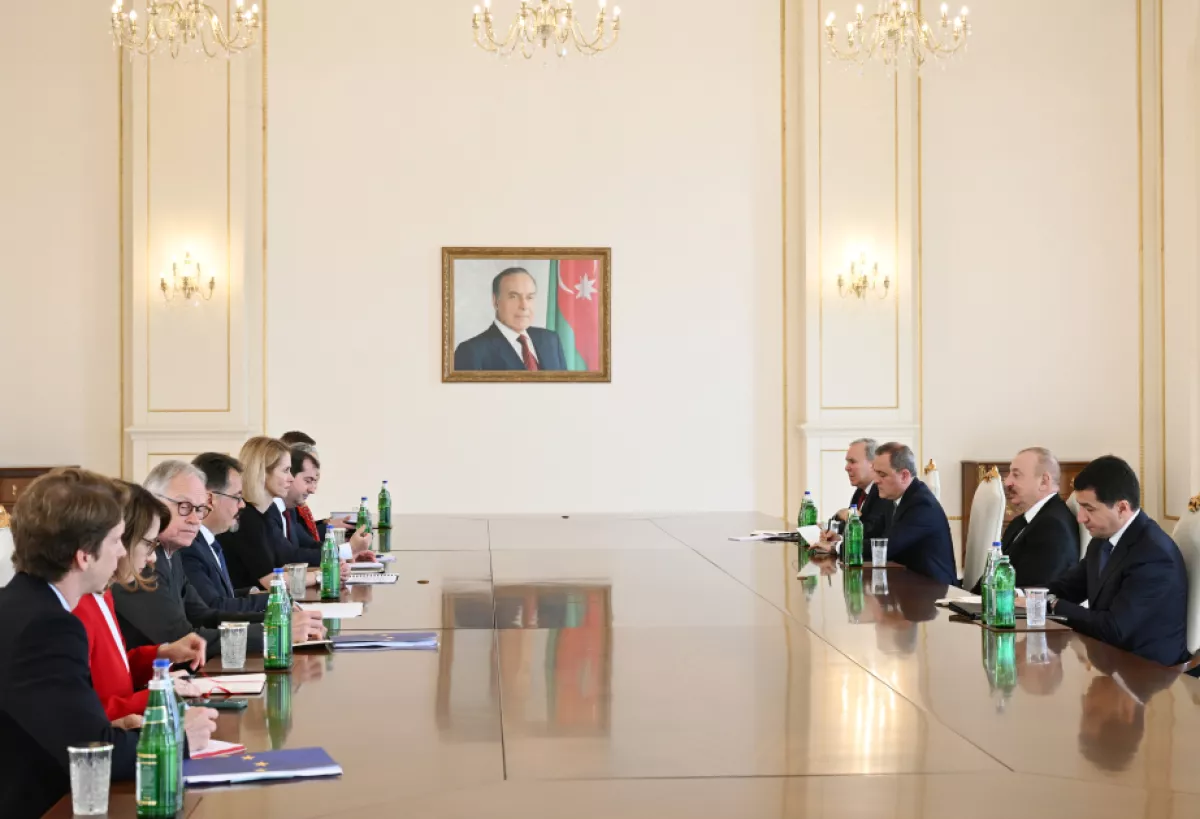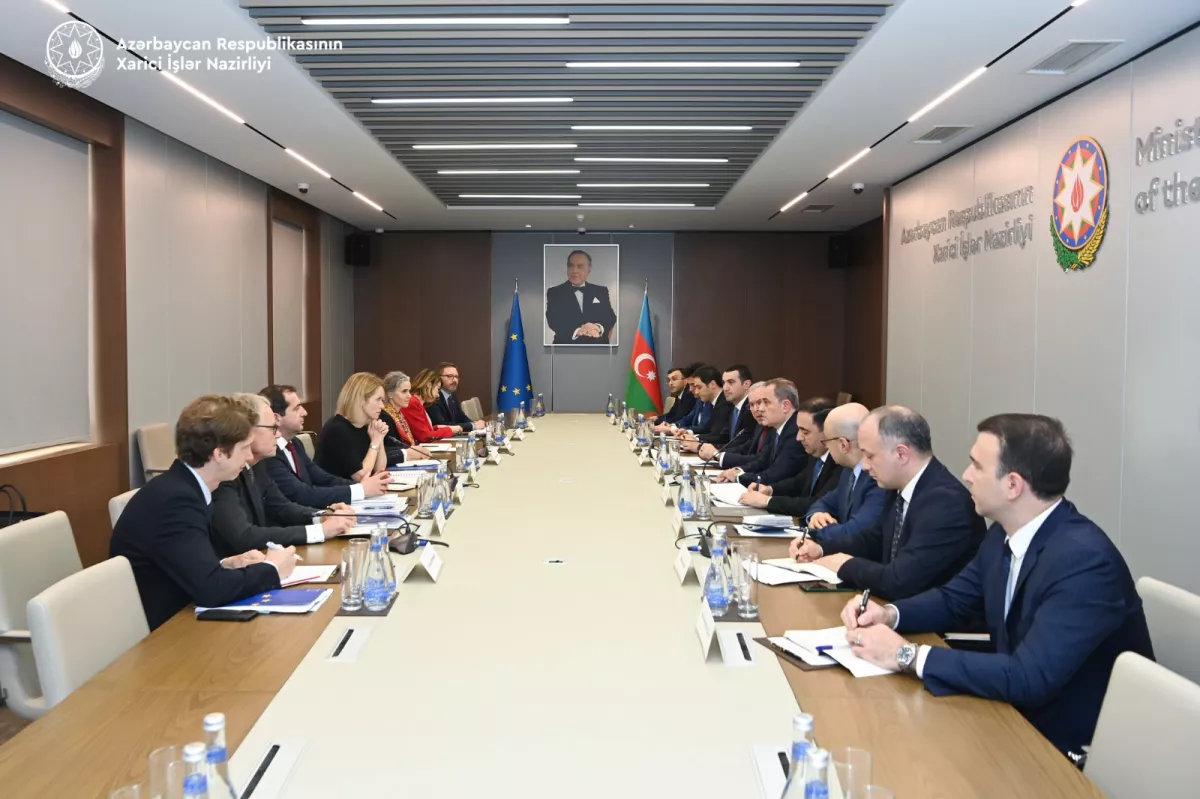Azerbaijan – EU: Finding points of convergence On the visit of Kaja Kallas to Baku
Perhaps there have not been many events or visits recently that can be considered turning points in the relationship between Azerbaijan and the European Union. However, the visit to Baku by the EU High Representative for Foreign Affairs and Security Policy, Kaja Kallas, on April 25, is one of them.
For many years, Baku has pursued a foreign policy based on the principles of balance, sovereignty, and pragmatism. This approach is increasingly reflected in how Azerbaijan is perceived beyond the region. Judging by the rhetoric and emphasis during Kaja Kallas's visit, it seems Brussels is beginning to see Azerbaijan not as a peripheral participant, but as an independent and active player with resources, infrastructure potential, and regional initiative.
Energy and infrastructure in the spotlight
On April 25, the President of Azerbaijan, Ilham Aliyev, received Kallas. During the meeting, it was noted that cooperation between the EU and Azerbaijan in the energy sector has become a model of effective partnership. The Southern Gas Corridor, which has been operational for four years, has transformed from an infrastructure project into an energy artery for Europe. Azerbaijani gas supplies now reach 10 European countries, eight of which are EU members. In terms of the breadth of supply geography, Azerbaijan ranks among the top, demonstrating not only reliability but also flexibility in responding to changing energy challenges.

Ilham Aliyev emphasised that consultations within the framework of the Southern Gas Corridor Council continue on an ongoing basis, contributing to the strengthening of mutual trust. Moreover, Azerbaijan is actively developing a new area of cooperation — renewable energy. The Caspian Sea, with its significant wind potential, is already being considered as the future "green gateway" to Europe.
Trans-Caspian and Black Sea routes: New horizons
Equally significant was the block of issues related to logistics. Addressing transport connections, Kallas emphasised Azerbaijan's role "as a key regional state located in an important geopolitical area." In response, Ilham Aliyev reminded of the ongoing projects within the framework of the Trans-Caspian Transport Corridor and the "green energy initiative" through the Black Sea involving Georgia, Romania, Hungary, and Bulgaria.
Azerbaijan consistently proves that it can be not only a participant but also an initiator of major interregional projects that unite the interests of the EU, the South Caucasus, and Central Asia. And in Brussels, there is an increasing recognition of this geo-economic reality.
Security of the South Caucasus: Realism over rhetoric
One of the most important topics of the meeting was ensuring sustainable stability in the South Caucasus. President Aliyev emphasised that Baku continues to take steps to normalise relations with Armenia on a bilateral basis, without intermediaries.
This approach reflects Azerbaijan's political philosophy: sustainable peace is not created from the outside and cannot be imposed by third parties—it requires direct, responsible, and realistic dialogue between the participants themselves. Azerbaijan believes that bilateral mechanisms, without external pressure, have the greatest potential to achieve lasting agreements.
The process is moving towards a strategic partnership
At a joint press conference following talks with Kallas, Foreign Minister Jeyhun Bayramov stated that Azerbaijan and the European Union have agreed to implement practical steps towards a new strategic partnership agreement in the near future. According to him, Azerbaijan and the EU have already agreed on 90-95% of the points of the agreement.

"In recent years, there has been stagnation in this regard (in the negotiations). Today, we once again discussed the issue and agreed on practical steps to finalise the document. Open questions were related to the economy and trade. The agreement may be supplemented in the next phase," Bayramov said.
Previous approaches no longer work
The visit of Kaja Kallas can also be seen as a sign that the European Union is beginning to adjust its policy in the South Caucasus, moving beyond the previous formalism and one-sided approach. For a long time, the EU relied on approaches to the South Caucasus formed outside the region and under the influence of external interests. The result was the stagnation of initiatives, loss of trust, and limited engagement.
In contrast, the current visit reflects a shift towards inclusivity and the building of relations based on mutual interest. Whether this visit will prove to be a turning point in practice will depend on time and, most importantly, on the specific actions taken by the European Union. If the statements made in Baku are confirmed by practical steps, Azerbaijan, in turn, will be ready for the corresponding deepening of the partnership.








